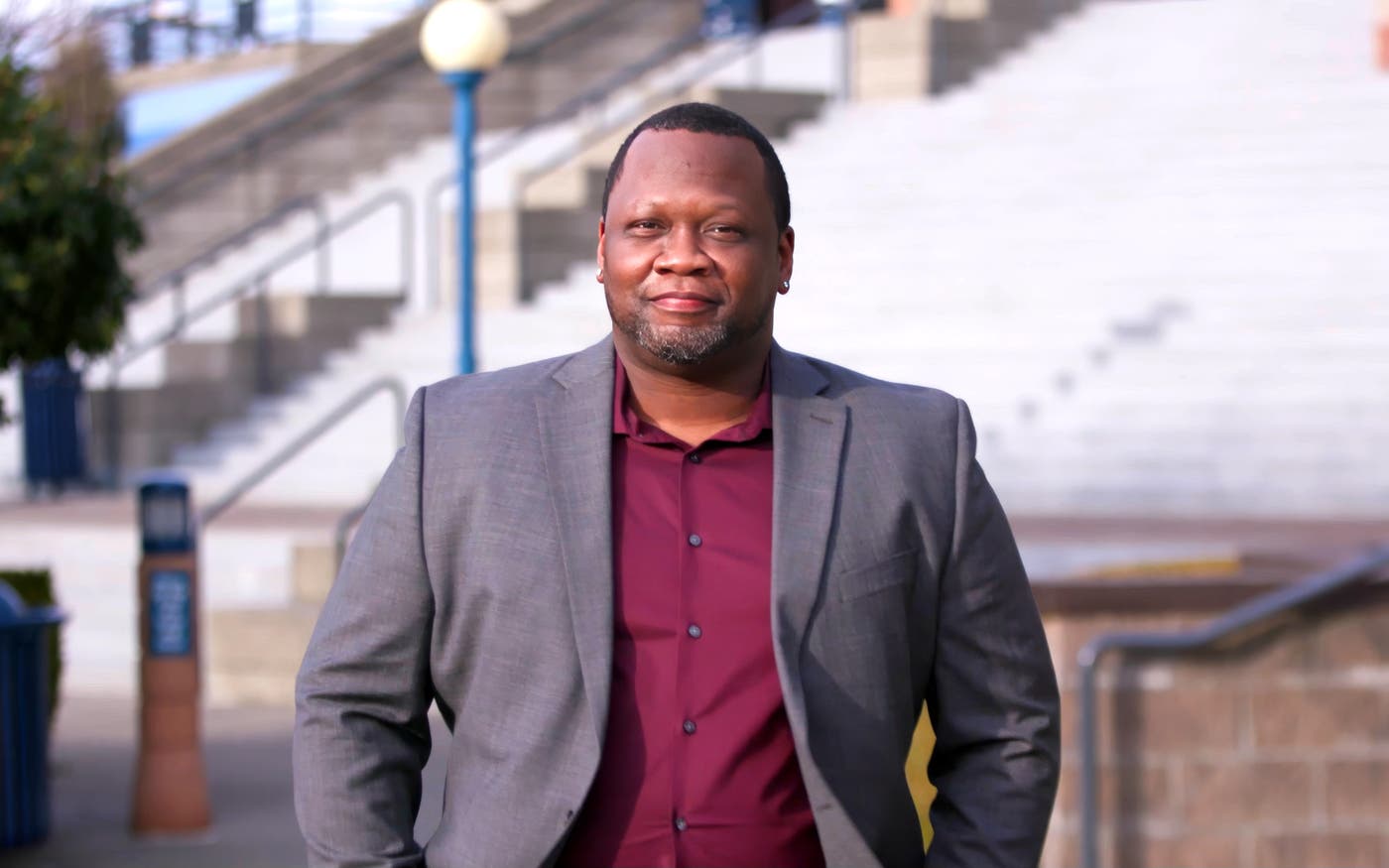
Hope for the future
Meet an epidemiologist fighting to make vaccines work for communities of color
Stephaun Wallace’s work is all about reaching the people who are usually left behind.

If there’s one thing the world has learned about COVID-19 over the last year, it’s this: the pandemic will only end when almost everyone on the planet has been vaccinated against the virus.
Melinda and I have been fighting to expand access to health innovations for the last two decades, so we knew that making the vaccine accessible to all would be a massive challenge. Reaching everyone is going to take a ton of hard work—something that’s become even more clear in recent months. Fortunately, there are a lot of smart, passionate people taking on this problem all over the world. One of those heroes is Dr. Stephaun Wallace, an epidemiologist at the Fred Hutchinson Cancer Research Center. He’s spent the last year helping make COVID-19 vaccines work for everybody.
Stephaun’s road to becoming an epidemiologist is an unusual one. As a kid, he wanted to become a lawyer and help under-resourced people in his community. He moved to Atlanta in his early 20s and created an organization that, among other things, provided assistance to young Black men who were HIV positive. That experience ignited an interest in health inequities and led to a career working to address them.
Today Stephaun wears many hats through his work at Fred Hutch. When he’s not lecturing about global health at the University of Washington, he’s in charge of external relations for both the HIV Vaccine Trials Network and the COVID-19 Prevention Network. (He also found time to speak to my team about systemic racism’s role in the pandemic late last year.)
His work is all about reaching the people who are usually left behind. Growing up Black in Los Angeles, he experienced firsthand how race shapes every part of how society treats you—including the medical system. Stephaun understands why many Black Americans are hesitant to trust doctors and scientists, even though he now counts himself among their ranks. It’s tempting to look to history for an explanation—from the Tuskegee Syphilis Study to Henrietta Lacks—but the COVID-19 pandemic has made it clear that racial health inequities remain a huge problem.
“Acts of racism in the medical establishment are not just historical,” Stephaun says. “People are still very actively experiencing these very same sort of abuses and traumas today.” He points to the case of Dr. Susan Moore, a Black physician who died from COVID-19 last summer after her doctors allegedly dismissed her pain.
One of the reasons why parts of the medical system often fail communities of color is because they’re not designed with them in mind. Stephaun is trying to change that. His work at Fred Hutch is particularly focused on improving the way clinical trials are run. He was working on potential HIV vaccines when the pandemic hit last year and quickly shifted to trials for most of the major COVID-19 vaccine candidates (as well as some treatments).
When you want to test a new vaccine or drug, you have to run rigorous clinical trials to make sure it’s safe and effective for everyone who might take it. Everything from age to race to baseline health can affect how a vaccine works in your body, so it’s important to study how a lot of different people react. Recruiting for a clinical trial can sometimes take longer than running the trial itself—time we couldn’t afford to waste in this pandemic.
The scientists at the COVID-19 Prevention Network knew they had to do a better job of recruiting diverse participants for the multiple COVID-19 vaccine trials they’re running in the Seattle area and globally—especially from Black and brown communities, who are suffering the hardest from the virus and desperately need vaccines that are safe and effective for them.
From the very beginning, Stephaun and his colleagues consulted with expert panels representing these communities to design the trials. They were deliberate about everything from using recruitment tactics tailored specifically for diverse communities to making scheduling more flexible to writing consent forms with accessible, non-scientific language.
The result was a more welcoming experience for all participants. Stephaun reports that the trials saw greater participation from communities of color than he’s used to seeing. He even participated in one of the clinical trials himself, hoping that it will convince more people who look like him that the vaccines are safe.
Stephaun also hopes that the experience of the last year convinces political leaders, the media, and especially his colleagues to reexamine the connection between health and race in the United States. “The pandemic provides the scientific community an opportunity to think differently about how they engage and build relationships with communities of color,” he says. “This offers a reflective opportunity to think about who we are as a culture, as a society, and how we want to move forward.”


